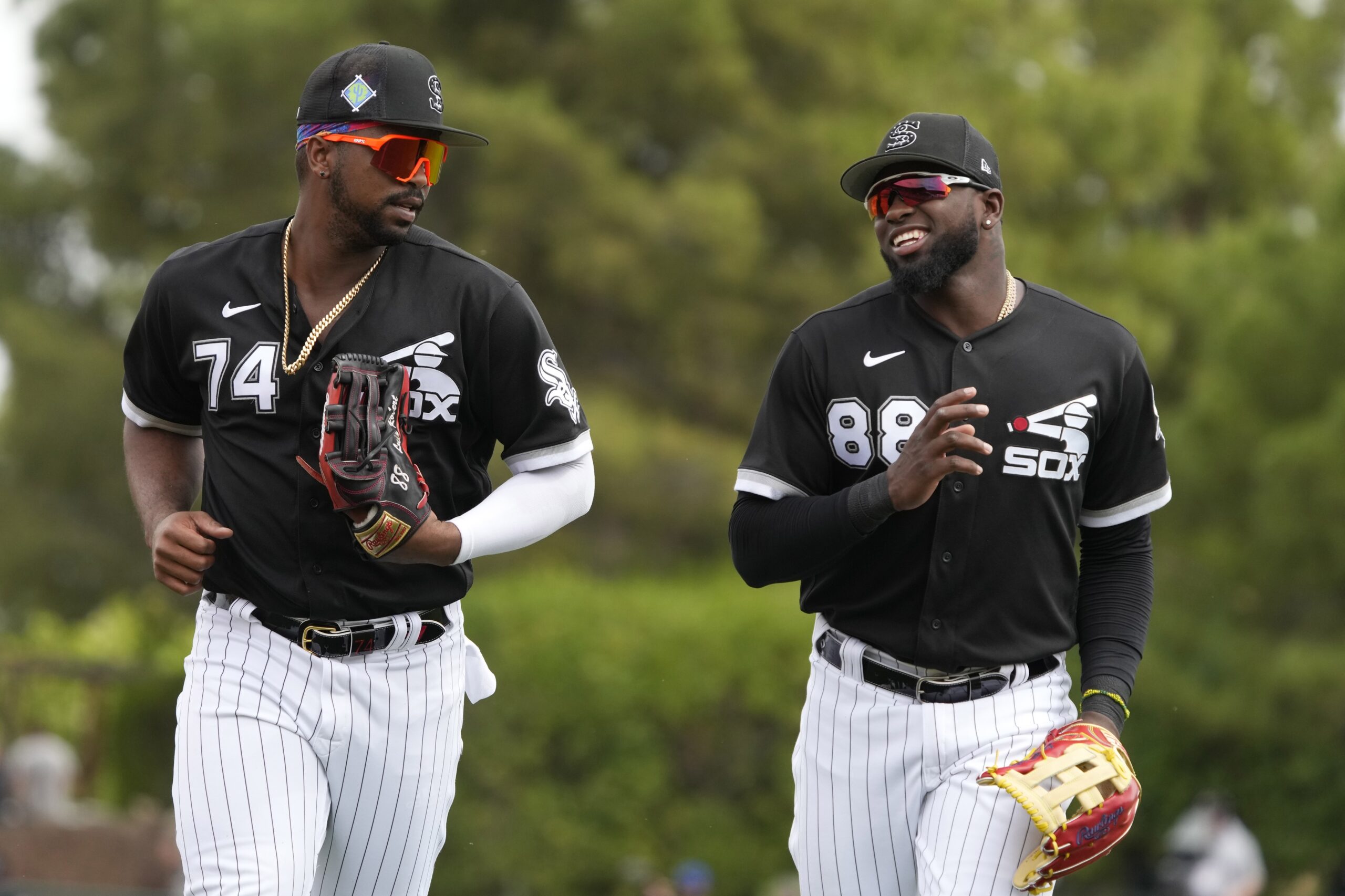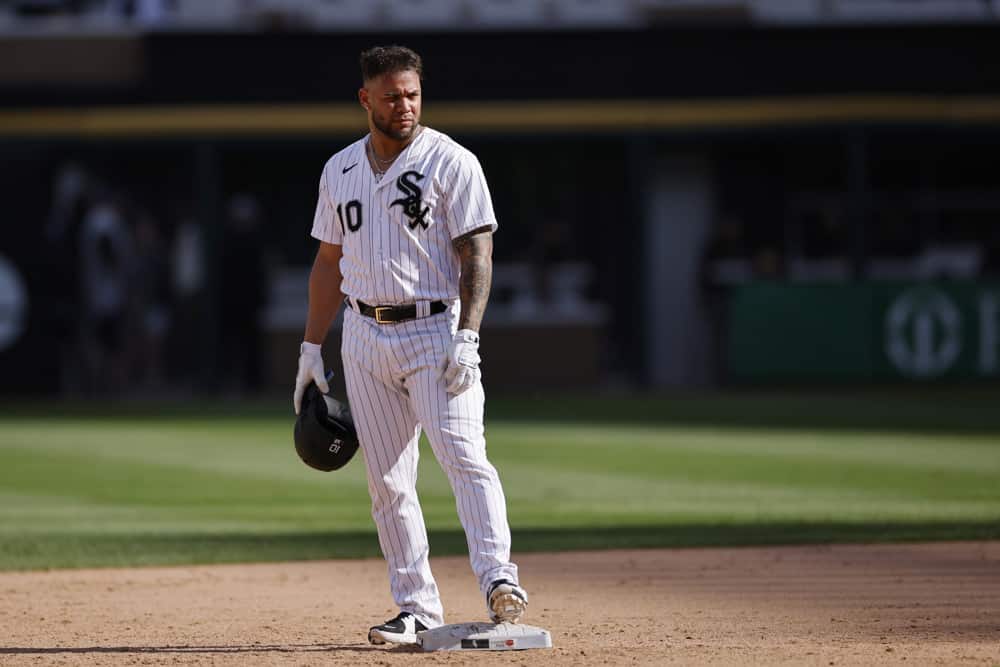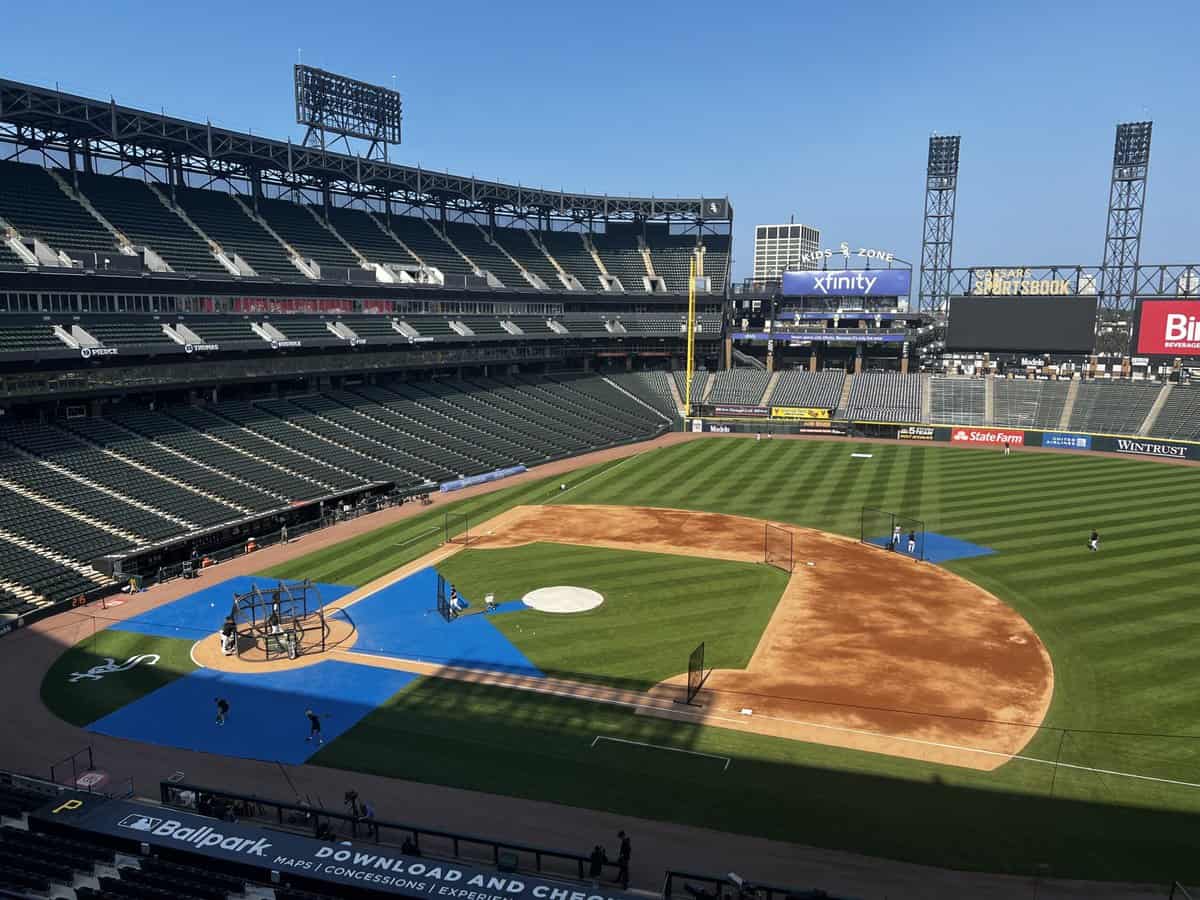In an ordinary escalation of a contention window, the White Sox's disappointing crash in last October's ALDS would've been followed up by a steady drumbeat of targeted acquisitions that shored up the remaining weaknesses, a proper SoxFest to celebrate the raised expectations, and then a full spring training that toed the line between too long (six weeks) and just right (ample time to recover from early injuries).
For reasons in and out of the White Sox's control, that didn't happen. The ongoing pandemic understandably tabled any indoor mass gatherings, and the lockout imposed a blanket ban on active-player promotion by team employees, which isn't ideal for a franchise with so few past successes to celebrate.
But the White Sox also slowly got around to the difference-making acquisitions. For five-sixths of the winter, Rick Hahn was content to add redundant layers of utility men and right-handed relievers, leaving fans to stare at the same roster vacancies day after day until an inverse image was burned into their retinas. Only until the last couple weeks of spring training did the additions acknowledge the biggest shortcomings: a credible outfielder, a backup catcher, rotation depth (more Johnny Cueto than Vince Velasquez).
And still not everything has stabilized. With Lance Lynn undergoing knee surgery and Yoán Moncada opening the season with a surprise injured list stint, this Opening Day feels like a flight that turned out to be two days earlier than the calendar said, and everybody in the car is going through the verbal checklist of things they need to board the plane, and things they forgot to pack and will need to address when they arrive. They'll get to the gate on time, but this trip of a lifetime has been years in the making, and it might have to start with snacks from Hudson News in lieu of a proper meal.
Provided you can pardon the dust and bless this mess, the White Sox are still projected to win the AL Central by plenty. They won last year's division by 13 games in a year where so much went wrong, and that resiliency training might come in handy when the condensed spring and regular-season schedules will have every team making it up as they go along at points of the season.
If it feels a little more hazardous, it's because just about every division-winning White Sox team in history has done so with a deep rotation. Last year's rotation finished third in the American League with 855 innings, and that's the usual path the White Sox follow into October.
- 2021: Third (855.1)
- 2008: Third (998.1)
- 2005: First (1,074)
- 2000: 10th (915)
- 1994: First (743.2)
- 1993: First (1,067.1)
- 1983: Fifth (1,066)
Lance Lynn's late-spring knee injury leaves the Sox scrambling for innings and strikeouts after two starters, so this is unfamiliar territory.
But what's also unfamiliar is an offense deep enough to bat a potential 30-homer DH platoon eighth, at least once Tim Anderson serves his season-opening two-game suspension. This is the most trustworthy top-to-bottom lineup the White Sox have rolled out since Frank Thomas wielded rebar in the on-deck circle. You might wish it had one more lefty, or drew a few more walks, or launched more fly balls, but it looks like the Sox have accumulated enough depth to overcome ingrained efficiency. The quality of scheduled hitters should make most innings feel capable of staging a crooked number.
Since baseball is the only sport in which the defense holds the ball, stable starting pitching is the surest way to get a handle on the 162-game grind, and the inverse is the fastest way for things to spin out of control. For a season that's been the subject of such immense hopes for half a decade, the White Sox shouldn't be so vulnerable to starting the year behind the 8-ball.
What we don't know is the extent of every team's discomfort due to this most unusual start, and how that will manifest itself from series to series. Every team is going to scramble to some degree, and Tony La Russa's team has successful experience to draw upon from last year's fires. The starting pitching wasn't tested, but every other element required reshaping. Maybe the rotation is finally due for a reckoning, but if the rushed run-up to Opening Day forces every team to win games in ways to which they are not accustomed, the White Sox are in a better position to go outside their historical strengths than most.
Granted, the White Sox lack the kind of track record that allows fans to assume everything will work out, but until the league settles into the season sturdily enough for starting pitchers to throw 100 pitches every five days, there's going to be a seat-of-pants element to the proceedings. I think the White Sox have the necessary talent advantage to survive that kind of uncertainty. If that still leaves you uncomfortable, take solace in the fact that there's nothing you can do about it. You might be unwilling to trust, but at least you don't have to exert any effort in verifying. The season will do that work for you.





